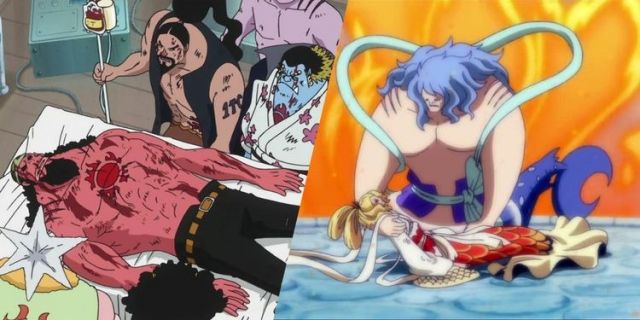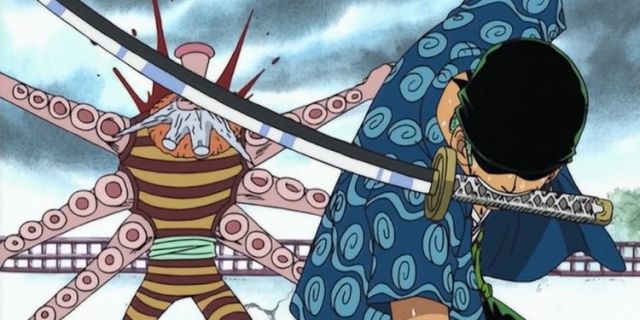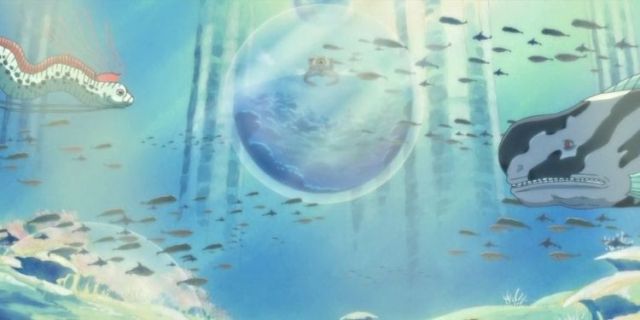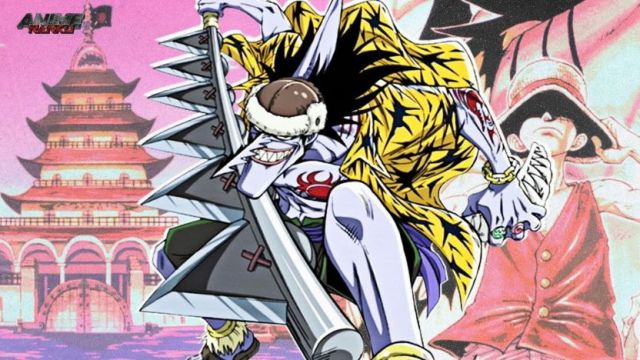When the Straw Hat Pirates took down Arlong Park, they were undeniably on the right. Their mission was to rescue their friend Nami and liberate East Blue from Arlong’s tyranny. Arlong was undoubtedly a menace, and his reign of terror had to be halted. When viewed in this context, the Straw Hats are unquestionably the heroes. However, the narrative takes a different turn when future arcs are taken into account. The Fish-Men and Merfolk stand out as some of the most tragic races in One Piece‘s history. They have endured centuries of oppression and slavery at the hands of humans.
Moreover, contrary to popular belief, they are not particularly keen on living exclusively at the ocean’s depths. Achieving coexistence with surface-dwelling humans has been a long and painful journey. From this perspective, the Straw Hats may appear as villains perpetuating the cycle of abuse inflicted upon Fish-Men by humans. While the Arlong Pirates were undeniably wrong, the Straw Hats’ approach to dealing with them comes across as somewhat insensitive and akin to a hate crime. Despite the reprehensible actions of the Arlong Pirates, it’s essential to recognize that their feelings and experiences as a marginalized group are still valid.
Discrimination Against Fish-Men (and Merfolk) in the One Piece World

Fish-men have endured centuries of discrimination at the hands of humans. They have been treated as a lesser subspecies, denied the most basic human rights, and subjected to enslavement, violence, and confinement to the ocean’s depths. While some progress has been made in the last 200 years, they continue to face widespread suffering. The Merfolk share many of these challenges. Those residing on Fish-Man Island have pursued two approaches to address their issues. One is the diplomatic path, involving petitions and lobbying for migration to the surface. Progress has been slow but steady, especially since the Straw Hat Pirates visited the island, and even the royal family has made a rare appearance at the Reverie to discuss this matter.
Unfortunately for the Straw Hats, their encounters have often involved a more ruthless solution to ending human discrimination against Fish-Men. This approach involves Fish-Men asserting themselves as the dominant and superior species, essentially turning the tables on humans. The Straw Hats directly confronted this reverse racism during the Fish-Man Island arc, particularly in their dealings with Hordy Jones. Valuable lessons were learned about generational racism and building bridges, although Hordy himself remained obstinate.
Before Hordy, the Straw Hats encountered Fish-Man reverse racism in the form of Arlong. Arlong not only enslaved Nami’s home island and killed her mother but also espoused the belief that Fish-Men were the superior species, while humans were merely servants of their underwater overlords. The Straw Hats fought Arlong to save Nami, so they had no reason to delve into the depths of his hatred for humans at the time. However, this perspective sheds new light on their earlier voyage experiences.
Recontextualizing the Arlong Park Arc with Fish-Man Discrimination in Mind

Without considering the context of human-fish-man discrimination, the Straw Hat Pirates’ remarks about Arlong and his crew come across as insensitive. Arlong’s racism towards humans was rooted in centuries of oppression against his people, which the Straw Hats failed to understand. Their comments appeared more as an attempt at clever banter.
Sanji, in particular, made some troubling remarks. He casually discussed various ways to cook Fish-Men and consume them, a particularly disturbing thought given his future friendship with Hatchan. Sanji suggested slicing them into thin pieces, salting them, and serving them as a snack with paprika and olive oil while enjoying a drink. He also mentioned the possibility of slicing and trimming them, trying them with butter, and turning them into fish sticks. Even the World Nobles, known for their cruelty, rarely advocated practical cannibalism to this extent.
Zoro was not far behind, using derogatory terms such as “fish freaks” and “calamari” whenever the opportunity arose. The Straw Hats also frequently referred to their enemies as “Fish-Man,” “Octopus,” or “Fish,” which could be as offensive as calling them “human.” While fans may jest about Zoro being more of a “Minority Hunter,” this episode stands out as one of his closest encounters with that meme.
To be fair, Arlong and his crew contributed to the racial animosity. They aimed to prove their natural superiority over humans, while the Straw Hat Pirates saw it as a chance to demonstrate the power of hard work and determination. Nonetheless, the battle shonen aspect of the story encouraged some trash talk, which has not aged well.
The Future of Fish-Men in One Piece

It is anticipated that One Piece will conclude with the Fish-Men and Merfolk achieving widespread social acceptance. They should be able to live freely among humans, free from slavery and discrimination. This will likely involve the residents of Fish-Man Island boarding the Noah and embarking on a journey to the surface once the Red Line is destroyed. After these changes are implemented to accommodate Fish-Men, insensitive comments like those made at Arlong Park should become less frequent. Ideally, humans will become more accepting and sensitive in their interactions. Arlong and his crew’s actions remain unjustifiable, but with time, it is hoped that the Straw Hats will no longer need to confront minorities in the same manner.















Leave a Reply